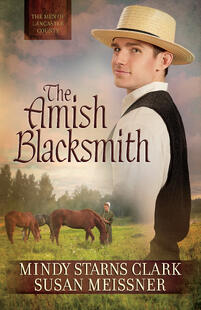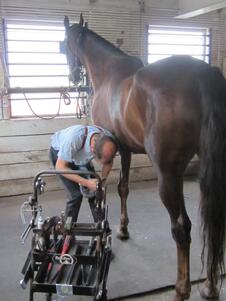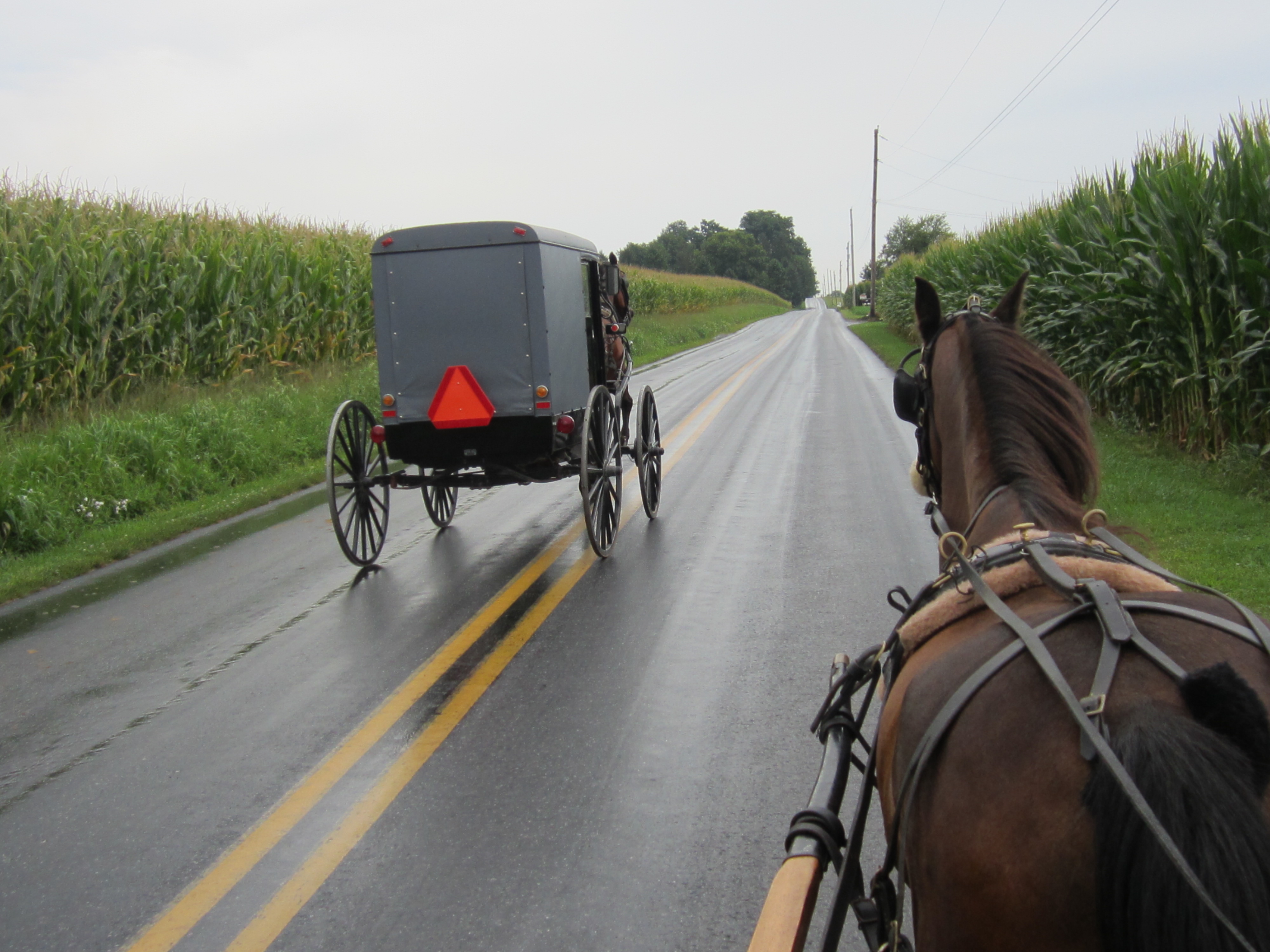 Your coauthor, Mindy Starns Clark, mentioned in a previous interview here on the Harvest House blog that her husband came up with the initial plot idea for the first book in this series, The Amish Groom. What inspired the premise for this sequel, The Amish Blacksmith?
Your coauthor, Mindy Starns Clark, mentioned in a previous interview here on the Harvest House blog that her husband came up with the initial plot idea for the first book in this series, The Amish Groom. What inspired the premise for this sequel, The Amish Blacksmith?
Susan: When Mindy and I spent a long weekend in Lancaster County at an Amish farmhouse, I had the opportunity to shadow an Amish blacksmith for a day. He was so very open to my being there and my peppering him with questions hour after hour. I could tell he loved his work, he loved horses, and he and his brother had a heart for troubled horses. The first scene in The Amish Blacksmith nearly played itself out in front of me on that day, although I changed all the little details. When we started plotting this book, we knew we wanted a story that borrowed from the idea that horses must be dealt with gently to deal with traumatic events from the past, just as we must also be.
Given the skills of the hero and heroine in this book, are either you or Mindy horsewomen or horse-lovers to some degree?
Susan: I am actually rather scared of horses, strangely enough! I have ridden one only once – with my best friend at the reins – and it took off on us after being spooked by who knows what. I hung on for dear life, escaped without injury, was sore for a month, and vowed thereafter to appreciate these majestic animals from the vantage point of terra firma. I live where people own horses, and I pass several on my walking route with my dog. I always stop to pat them and tell them how pretty they are. I do love them, but from the perspective of being enthralled by the depth of their emotional make-up. Horses are very sympathetic creatures. Just like us.
 What did you most enjoy about the research for this novel? Anything especially interesting or surprising that you discovered?
What did you most enjoy about the research for this novel? Anything especially interesting or surprising that you discovered?
Susan: I loved the day I spent with Elam Stoltzfus and his brother, Eli, watching them work, learning from them, laughing with them. When I left for a little while to go have lunch I asked when I should return and Elam said ice-cream thirty was a good time to come back. I laughed and asked when that was. He said, “Whenever we want it to be.” We had frozen Snickers (and they were delish) at 2:15. I think I had this strange image in my head that Amish people are always serious. Not so. They know how to laugh and have fun and make jokes. And I love that I’ve a new appreciation for making time for simple joys like ice cream.
The Amish Blacksmith is written from the hero’s point of view. Despite the fact that the majority of people who pick up this book are not likely to be Amish, male, or a blacksmith, how might they still relate to and learn from Jake’s story?
Susan: Just like any novel that isn’t about someone just like you, residing in your hometown and living a life just like yours, this book is about a person who wants something from life and they face a barrier. Every one of us, no matter our gender, occupation, or faith, has dreams and goals for our lives. We all face obstacles. We are all of us on a journey that God is marking out for us but that is sprinkled with ample opportunities to make choices. When we read someone’s fictional story, whether it’s about an Amish blacksmith named Jake or a teenage idealist named Dorothy Gale, or a pre-civil rights lawyer’s daughter named Scout, we look for ways to relate the story. A good story will make that easy. Hopefully, readers won’t have to stretch too far to relate to Jake!
 What’s one of the things you appreciate most about the Amish lifestyle?
What’s one of the things you appreciate most about the Amish lifestyle?
Susan: I am of the opinion that most people who haven’t studied this lifestyle assume the Amish reject modern, technological advances because those advances are worldly, evil, and lead people to become faithless, heartless, and Godless. What I have learned instead and appreciate the most is that the Amish treat anything that threatens community as a bad idea. Phones aren’t frowned on because they are inherently evil. Phones make it easy to distance yourself from your neighbor, as do cars, airplane rides, and for some Amish communities, bicycles. The Amish look at how to effectively love their neighbor with better scrutiny than most of us Englischers. I may not wish to adopt the same stance on these modern conveniences, but I totally get the idea that whatever keeps me from seeing and interacting face to face with my neighbor can also keep me from loving them.
This interview was originally posted on AmishReader.com.
Photos from Amish country courtesy of Susan Meissner.
 Susan Meissner is a multi-published author, speaker, and writing workshop leader with a background in community journalism. Her novels include The Shape of Mercy, named by Publishers Weekly as one of the 100 Best Novels of 2008 and a Carol Award winner. She is a pastor’s wife and the mother of four young adults. When she's not writing novels, Susan writes small group curriculum for her San Diego church. Visit Susan at her website: www.susanmeissner.com, on Twitter at @SusanMeissner, or at www.facebook.com/susan.meissner.
Susan Meissner is a multi-published author, speaker, and writing workshop leader with a background in community journalism. Her novels include The Shape of Mercy, named by Publishers Weekly as one of the 100 Best Novels of 2008 and a Carol Award winner. She is a pastor’s wife and the mother of four young adults. When she's not writing novels, Susan writes small group curriculum for her San Diego church. Visit Susan at her website: www.susanmeissner.com, on Twitter at @SusanMeissner, or at www.facebook.com/susan.meissner.


